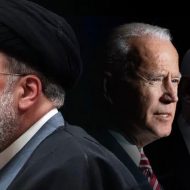By Bassem Hamdy, freelance journalist, Sfax, Tunisia
“We have passed a stage in history and entered into something different from its predecessors, bearing not only the hopes of our people but the hopes of all humanity. The fate of all humanity will change in the coming decades. There are those who consider politics as a craft. Politics is an idea or a group of ideas to manage public affairs and make people happy. It is easy for the building that takes place from the base, that the election is for individuals, to withdraw confidence. To bring about a revolution within the framework of legitimacy. We have gone beyond traditional thought and tried to create new concepts that are in harmony with the historical stage that Tunisia is experiencing”. This is one of the most important statements made by Tunisian President Kais Saied, which expresses his vision for the elections and for a political system that responds to the demands of the people.
The political choices and intellectual perceptions of the head of state in Tunisia, Kais Saied, are no secrets. Rather, they were known to the Tunisian and international public opinion before he assumed the presidency of the Tunisian Republic and since the beginning of his media appearance after the Tunisian revolution. These options and perceptions are based mainly on the inevitability of amending the electoral law and changing the political system.
Said’s main orientations were clear since he was a professor of constitutional law in Tunisian universities, and they seemed to have different foundations than what is prevalent in domestic and foreign policy.
In the midst of political momentum and similarity in the programs of the parties in Tunisia reaching the point of congruence, Said emerged completely different from the aficionados of politics and lovers of power, in his political thesis by declaring his hostility to the party system and parliamentary representation in its current form in Tunisia. This was evident in all the media statements he made years ago.
The current president of Tunisia considers that the amendment of the law regulating elections and the revision of some provisions contained in the constitution are fundamental political reforms. This proposal was the central idea of Kais Saied’s electroal campaign, titled “interpretive campaign”.
The presidential elections, which took place in Tunisia in 2019, gave Kais Saied the opportunity to implement his policies. He proceeded to do this by introducing his program during the electoral campaign and continued this in his official speeches after assuming the presidency to pave the way for himself to amend the electoral law and the political system.
After entering the Carthage Palace, constitutional law professor Kais Saied did not abandon his rejectionist attitude to the voting method and the quasi-parliamentary system of government in which the House of Representatives enjoys wide powers, starting with the parliamentary majority’s selection of the prime minister.
In June of 2021, Kais Saied announced the intention of change by calling for a dialogue in order to introduce amendments to the electoral law and reforms to the current constitution, to overcome the political crisis in the country.
Kais Saied adheres to the necessity of introducing political reforms to the approved method of voting, as he believes that it led to division and disrupted the normal functioning of the state’s wheels.
Saied prefers that the voting method in the upcoming legislative elections should be to vote for individuals in local districts.
Kais Saied’s statements regarding voting for individuals instead of parties or independent lists explain his “council democracy” vision that opposes democratic centralism and establishes regional, provincial and workers’ councils that present proposals and projects with a decentralized social elevator that goes from the bottom to the top with the need to abandon the party system that it considers deferred dictatorship projects. Many times he has affirmed that he will not establish a political party, and that the parties that adopt his ideas do not represent him, considering that these parties will disappear after a decade or two.
Saied’s thought is based on not relying on the parties and the central government to provide solutions and proposals, as he believes that the youth, workers and lower social classes are required to propose and submit projects in a manner similar to popular democracy.
Saied believes that the Tunisian parliament does not reflect the realistic electoral representation of the people’s choices, as he believes that it only reflects the weights of parties in all regions of the country.
There are other justifications that Kais Saied sees as important for amending the law regulating elections in Tunisia, the first of which is to limit the exploitation of political money and the purchase of voters’ debts on all electoral occasions.
In his call for the need to revise the electoral law, Kais Saied relied on a report issued by the Court of Audit on the legislative and presidential elections that took place in 2019, which revealed many electoral irregularities and crimes that hinted to the support of the Islamic Ennahda Movement and its ally, “Kalb Tounes”, by foreign “lobbying” companies.
Parliamentary immunity is one of the reasons Kais Saied is considering amending the law. This appeared among the exceptional measures he had recently taken, including lifting the immunity of all members of the Tunisian Parliament.
On every national occasion, Said says that he will commit to his covenant and fulfill his electoral pledges, which are mainly oriented toward change, and that the time has come to move to the Second Republic, which should be governed by a political and administrative system that responds to the demands of Tunisians.
The political stubbornness of Kais Saied did not stop at making proposals only: he also refused to sign the amendments to the electoral law, which the Parliament passed in the parliamentary session of the year 2020. He rejected the request of Parliament Speaker Rashid Ghannouchi to sign the amendments and returned them back to the Parliament again.
Contrary to many of the parties’ positions rejecting Kais Saied’s proposals, the People’s Movement Party affirmed that it supports the radical change of the electoral law and the political system, as it believes that the current experience has caused the absence of an actual head of the Tunisian state who can take charge of matters, especially in matters related to national security in light of legislative power.
Ennahda did not stand silent in the face of Saied’s positions. It submitted a bill to amend the current electoral law, which gives the president powers to call for elections or a referendum.
In the amendment Ennahda proposed transferring the authority to call for elections or a referendum from the President of the Republic to the prime minister.
As a political opponent of Saied, Ennahda seeks through this proposal to strip Saied of the right of calling for early elections, in light of the continuing political crisis between the components of power resulting from the 2019 elections.
Kais Saied’s efforts to amend the electoral law can be considered a first step to amend the entire system. Kais Saied has often expressed his rejection of what is known in the country as the three presidencies (the President of the Republic, the Speaker of the parliament, and the Head of Government), stressing that the state has “one president” who is the President of the Republic.
During this period, Saied may resort to a popular referendum in which he proposes to the people to amend the political system from a semi-mixed system to a presidential one that grants the head of state wide powers that qualify him to turn the wheels of the country.









Leave a Reply